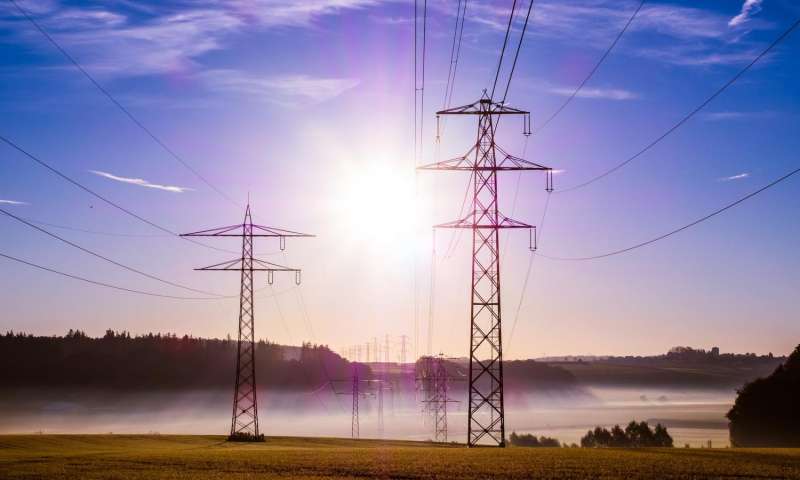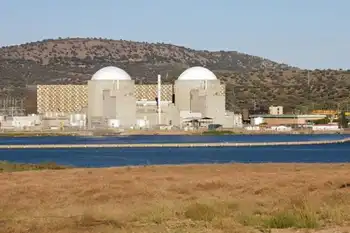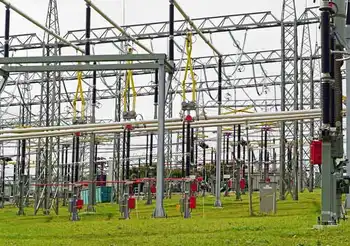Baltic States Disconnect from Russian Power Grid, Join EU System

High Voltage Maintenance Training Online
Our customized live online or in‑person group training can be delivered to your staff at your location.

- Live Online
- 12 hours Instructor-led
- Group Training Available
Baltic States EU Grid Synchronization strengthens energy independence and electricity security, ending IPS/UPS reliance. Backed by interconnectors like LitPol Link, NordBalt, and Estlink, it aligns with NATO interests and safeguards against subsea infrastructure threats.
Key Points
A shift by Estonia, Latvia, and Lithuania to join the EU grid, boosting energy security and reducing Russian leverage.
✅ Synchronized with EU grid on Feb 9, 2025 after islanding tests.
✅ New interconnectors: LitPol Link, NordBalt, Estlink upgrades.
✅ Reduces IPS/UPS risks; bolsters NATO and critical infrastructure.
In a landmark move towards greater energy independence and European integration, the Baltic nations of Estonia, Latvia, and Lithuania have officially disconnected from Russia's electricity grid, a path also seen in Ukraine's rapid grid link to the European system. This decisive action, completed in February 2025, not only ends decades of reliance on Russian energy but also enhances the region's energy security and aligns with broader geopolitical shifts.
Historical Context and Strategic Shift
Historically, the Baltic states were integrated into the Russian-controlled IPS/UPS power grid, a legacy of their Soviet past. However, in recent years, these nations have sought to extricate themselves from Russian influence, aiming to synchronize their power systems with the European Union (EU) grid. This transition gained urgency following Russia's annexation of Crimea in 2014 and further intensified after the invasion of Ukraine in 2022, as demonstrated by Russian strikes on Ukraine's grid that underscored energy vulnerability.
The Disconnection Process
The process culminated on February 8, 2025, when Estonia, Latvia, and Lithuania severed their electrical ties with Russia. For approximately 24 hours, the Baltic states operated in isolation, conducting rigorous tests to ensure system stability and resilience, echoing winter grid protection efforts seen elsewhere. On February 9, they successfully synchronized with the EU's continental power grid, marking a historic shift towards European energy integration.
Geopolitical and Security Implications
This transition holds significant geopolitical weight. By disconnecting from Russia's power grid, the Baltic states reduce potential leverage that Russia could exert through energy supplies. The move also aligns with NATO's strategic interests, enhancing the security of critical infrastructure in the region, amid concerns about Russian hacking of US utilities that highlight cyber risks.
Economic and Technical Challenges
The shift was not without challenges. The Baltic states had to invest heavily in infrastructure to ensure compatibility with the EU grid and navigate regional market pressures such as a Nordic grid blockade affecting transmission capacity. This included constructing new interconnectors and upgrading existing facilities. For instance, the LitPol Link between Lithuania and Poland, the NordBalt cable connecting Lithuania and Sweden, and the Estlink between Estonia and Finland were crucial in facilitating this transition.
Impact on Kaliningrad
The disconnection has left Russia's Kaliningrad exclave isolated from the Russian power grid, relying solely on imports from Lithuania. While Russia claims to have measures in place to maintain power stability in the region, the long-term implications remain uncertain.
Ongoing Security Concerns
The Baltic Sea region has experienced heightened security concerns, particularly regarding subsea cables and pipelines. Increased incidents of damage to these infrastructures have raised alarms about potential sabotage, including a Finland cable damage investigation into a suspected Russian-linked vessel. Authorities continue to investigate these incidents, emphasizing the need for robust protection of critical energy infrastructure.
The successful disconnection and synchronization represent a significant step in the Baltic states' journey towards full integration with European energy markets. This move is expected to enhance energy security, promote economic growth, and solidify geopolitical ties with the EU and NATO. As the region continues to modernize its energy infrastructure, ongoing vigilance against security threats will be paramount, as recent missile and drone attacks on Kyiv's grid demonstrate.
The Baltic states' decision to disconnect from Russia's power grid and synchronize with the European energy system is a pivotal moment in their post-Soviet transformation. This transition not only signifies a break from historical dependencies but also reinforces their commitment to European integration and collective security. As these nations continue to navigate complex geopolitical landscapes, their strides towards energy independence serve as a testament to their resilience and strategic vision.











